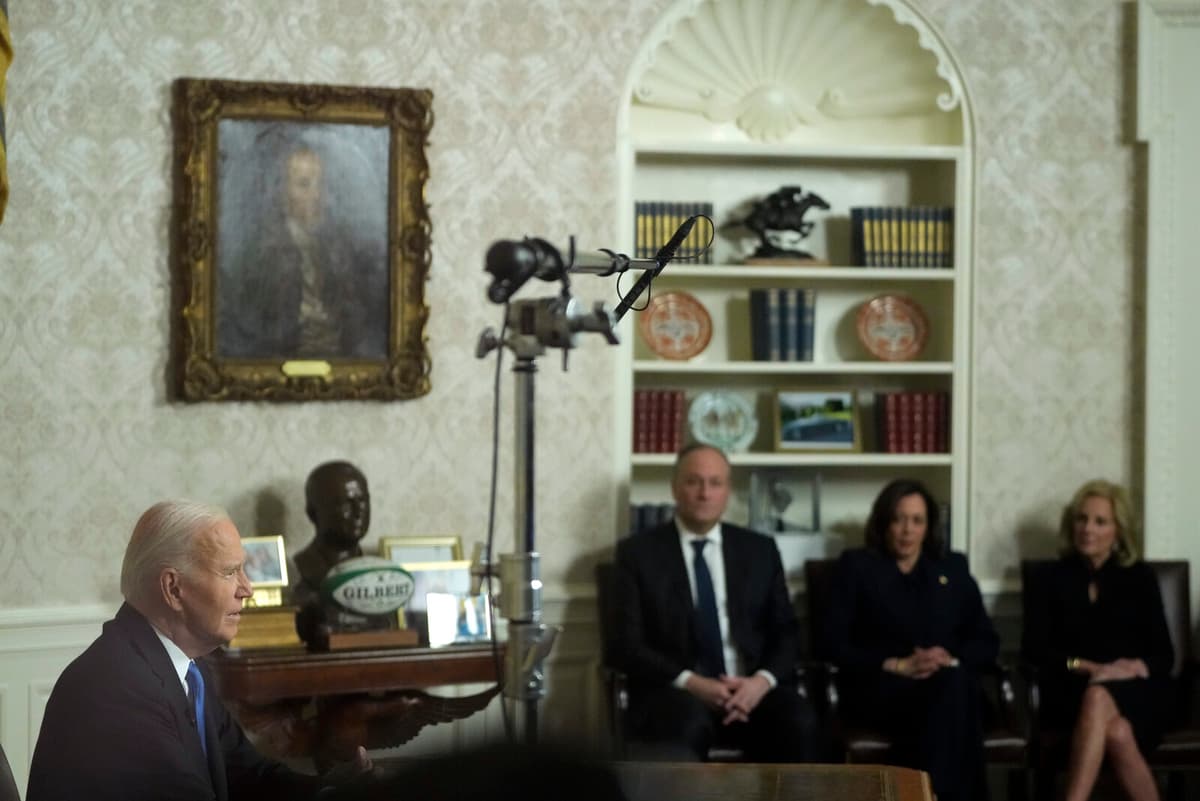Joe Biden held what he described as his last speech from the Oval Office in the White House during the night against Thursday, Swedish time. The speech was unusually serious, according to Dag Blanck, professor of North American Studies at Uppsala University.
Biden pointed out an emerging oligarchy of "extreme wealth, power, and influence that literally threatens our entire democracy, our fundamental rights and freedoms".
Like robber barons?
The outgoing president drew parallels to when people in the early 1900s stood up against the so-called robber barons who built up large companies and wealth, while the gaps increased. Biden also mentioned President Eisenhower, who when he left office in 1961 warned against an emerging military-industrial complex that was becoming too powerful.
So it has echoes from the end of the 1800s with these big robber capitalists who get too much power, and from Eisenhower's warnings about too much concentration of power, says Blanck.
Although he did not mention them by name, it is believed that the criticism is directed towards tech billionaires like Elon Musk, Mark Zuckerberg, and Jeff Bezos.
Biden presents the situation as if there is now a risk that the hyper-rich will take over and be favored too much by Trump, says Blanck.
Biden also warned that Americans are "buried under an avalanche" of false information and disinformation.
The free press is being torn apart, editors are disappearing. Social media is giving up fact-checking, he said.
"Will resurface"
But it was not all gloomy. Biden believes that Americans will get better. He highlighted what he sees as the successes of his presidency: Ukraine still exists, the US has implemented major green transformations, and unemployment is low.
Biden also took credit for the ceasefire negotiated between Israel and the terrorist-listed Hamas regarding the Gaza War.
It is clear that the US, Biden, and especially (Foreign Minister Antony) Blinken have made significant efforts there, says Blanck.
After 50 years in politics, the 82-year-old Biden is expected to leave the spotlight. But Dag Blanck does not believe that the speech is the last we see of him.
He will probably resurface in certain contexts. All presidents create foundations and build their presidential libraries and so on. But I guess it will be limited because he is getting old and a bit tired. I don't think he will be as active as Obama or Carter were, he says.
Gustav Sjöholm/TT
Background: The robber barons
TT
The "robber barons" were derogatorily called some of the US's most prominent industrial magnates, who grew increasingly rich and powerful during the late 1800s.
It includes, among others, Andrew Carnegie, Cornelius Vanderbilt, John Rockefeller, and JP Morgan. Their business methods were often considered unethical and ruthless.
Several of them helped to get William McKinley elected president in 1896, as they believed that his business-friendly policy would benefit them. After being re-elected, McKinley was shot to death, and Theodore Roosevelt, who became the new president, helped to break up the monopolies.
Sources: Investopedia, History Channel, and others






